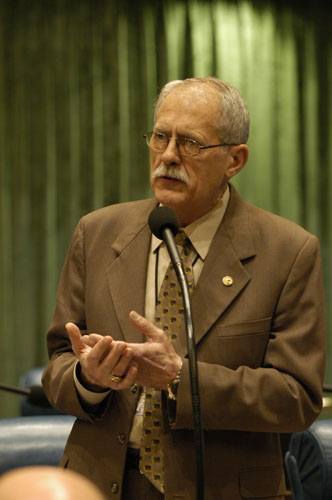Ophra on Chicago schools
National Disgrace: Oprah Highlights Illinois Education Gap
- posted by Yellow Dog Democrat
Today's Oprah Show featured a ballyhooed interview with Bill and Melinda Gates and a segment which focused on the education gap here in Illinois. Oprah organized a student exchange which allowed kids from Chicago's Harper High to spend the day at a high school in Naperville and brought the Naperville kids to Chicago for a day. Here's what they learned:
When the Harper students arrived at Neuqua Valley, they were stunned to see what the suburban school offered—an Olympic-size swimming pool, a gym and fitness center, an award-winning music department, a huge computer lab, and a rigorous course curriculum. When they arrived at Harper, the students from Neuqua Valley were shocked immediately by the difference between Harper and their own school. For starters, students have to enter Harper through a metal detector. They have a pool at Neuqua Valley, but the Harper pool hasn't been filled with water in a decade. The Neuqua Valley students have an award-winning music department, while Harper doesn't have enough instruments for a music class and relies on improvised instruments—like banging on desks. At Neuqua Valley, students can enroll in more than two dozen advanced placement courses, compared to the two offered at Harper. "It's so mind-blowing to think that there's such a difference and we're both in the same state, an hour away from each other," one Neuqua Valley student says.The difference between the two schools can also be seen in their scores on state exams. At Neuqua Valley, 78 percent of students meet Illinois' reading standards, 76 percent meet the science standards, and 77 percent meet the math standards. At Harper, 16 percent meet the reading standards, 1.5 percent meet the science standards and just .5 percent meet the math standards. Meanwhile this little nugget from the Sun-Times' Ralph Martire is bound to catch the attention of Oprah and civil rights leaders across Illinois:
The Illinois data are as bad or worse. In K-12 education, Illinois ranks as the third most segregated state for blacks, with 82 percent of black children attending majority minority schools. Latinos don't fare much better, as 76 percent of Latino children attend predominantly minority schools. Ninety percent of white kids go to virtually all-white schools. Clearly, the Illinois school system is still separated by race, but is it now more equal by race? Not from a funding standpoint. Minority school districts in Illinois start out with $1,154 less per child to spend on education than do predominantly white school districts, the second worst funding gap nationally (emphasis added).Too bad Senator Meeks didn't have that newsclip in his pocket when he marched on the Mayor's office last week. He might have marched to Governor Blagojevich's office instead to find out why the state is spending nearly $14,000 more on average on the public education of white children. I'd love to hear the Governor explain that one.


